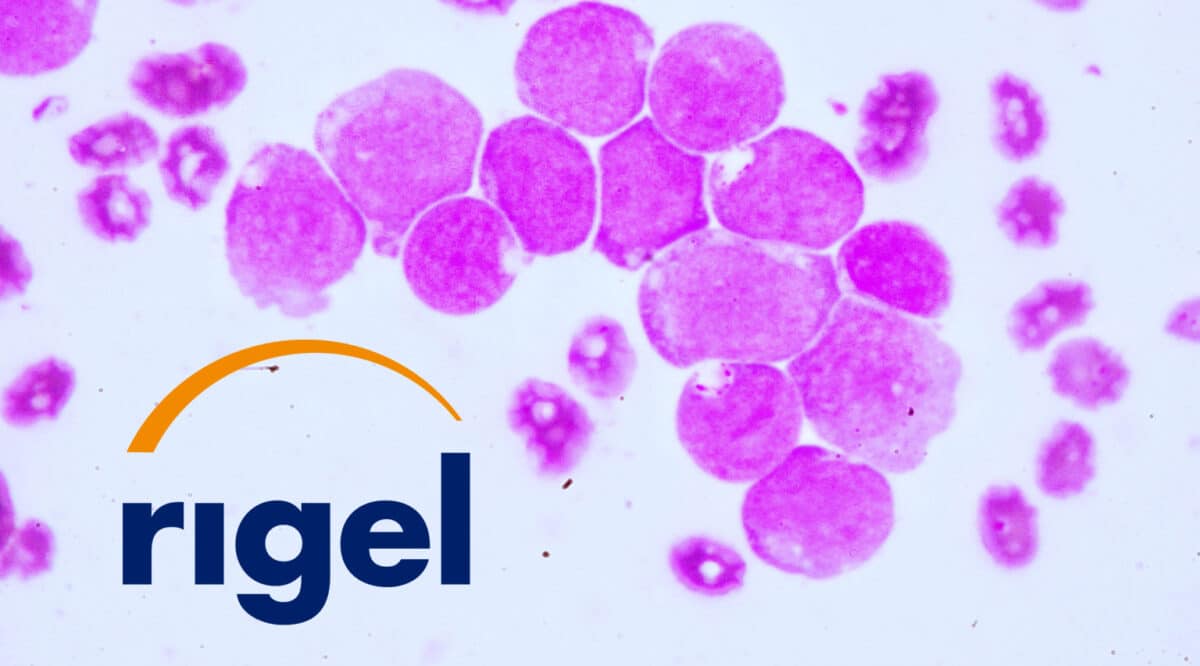The FDA recently approved a novel, ORAL monotherapy treatment, Rezlidhia (olutasidenib) from Rigel Pharmaceuticals, Inc., to treat adult patients with relapsed or refractory (R/R) acute myeloid leukemia (AML) with a susceptible isocitrate dehydrogenase-1 (IDH1) mutation as detected by an FDA-approved test. However, the approval included a boxed warning for potentially fatal Differentiation Syndrome.
Acute myeloid leukemia (AML) is a rapidly progressing cancer of the blood and bone marrow that affects myeloid cells, which normally develop into various types of mature blood cells. AML occurs primarily in adults and accounts for about 1 percent of all adult cancers. The American Cancer Society estimates that in the United States alone, there will be about 20,050 new cases, most in adults, in 2022.
Relapsed AML affects about half of all patients who, following treatment and remission, experience a return of leukemia cells in the bone marrow. Refractory AML, which affects between 10 and 40 percent of newly diagnosed patients, occurs when a patient fails to achieve remission even after intensive treatment.
Rigel did not announce pricing for the new therapy, nor did they provide details on distribution. Given the segment and relatively small patient base it is likely that Rezlidhia will launch through limited distribution.
CLICK HERE for prescribing information
——————————————————————————————
FDA approves olutasidenib for relapsed or refractory acute myeloid leukemia with a susceptible IDH1 mutation
The Food and Drug Administration (FDA) has approved olutasidenib (Rezlidhia) capsules for adult patients with relapsed or refractory acute myeloid leukemia (AML) with a susceptible IDH1 mutation as detected by an FDA-approved test. The FDA also approved the Abbott RealTime IDH1 Assay to select patients for olutasidenib.
Approval was based on Study 2102-HEM-101 (NCT02719574), an open-label, single-arm, multicenter clinical trial that included 147 adult patients with relapsed or refractory AML with an IDH1 mutation confirmed using the above assay. Olutasidenib was given orally,150 mg twice daily, until disease progression, unacceptable toxicity, or hematopoietic stem cell transplantation. The median treatment duration was 4.7 months (range: 0.1 – 26 months). Sixteen (11%) patients underwent hematopoietic stem cell transplantation following olutasidenib.
Efficacy was established on the rate of complete remission (CR) plus complete remission with partial hematologic recovery (CRh), the duration of CR+CRh, and the rate of conversion from transfusion dependence to independence. The CR+CRh rate was 35% (95% confidence interval [CI]: 27%, 43%), including 32% CR and 2.7% CRh. The median time to CR+CRh was 1.9 months (range: 0.9 – 5.6 months), and the median duration of CR+CRh was 25.9 months (95% CI: 13.5 months, not reached).
Among the 86 patients who were dependent on red blood cell (RBC) and/or platelet transfusions at baseline, 29 (34%) became independent of RBC and platelet transfusions during any 56-day post-baseline period. Of the 61 patients who were independent of both RBC and platelet transfusions at baseline, 39 (64%) remained transfusion independent during any 56-day post-baseline period.
The most common adverse reactions (≥20%) were nausea, fatigue/malaise, arthralgia, constipation, leukocytosis, dyspnea, fever, rash, mucositis, diarrhea, and transaminitis. The prescribing information contains a Boxed Warning alerting health care professionals and patients about the risk of differentiation syndrome which can be fatal.
The recommended olutasidenib dose is 150 mg taken orally twice daily on an empty stomach (at least 1 hour before or 2 hours after a meal) until disease progression or unacceptable toxicity. For patients without disease progression or unacceptable toxicity, treatment is recommended for a minimum of 6 months allowing for clinical response.


